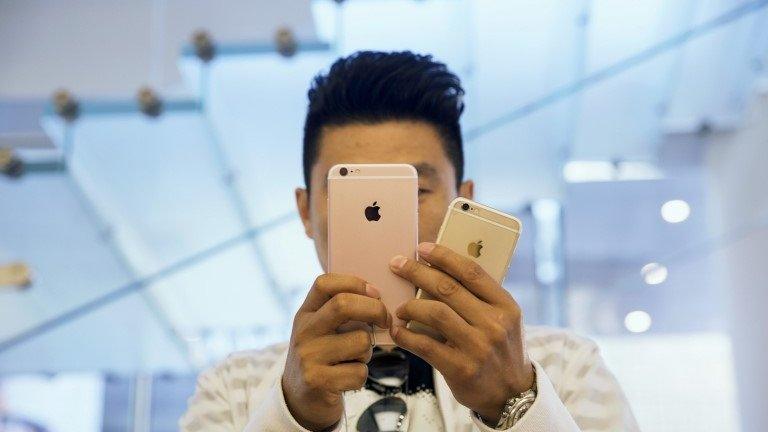Chinese women use social media to challenge sexual assault taboo
- Published
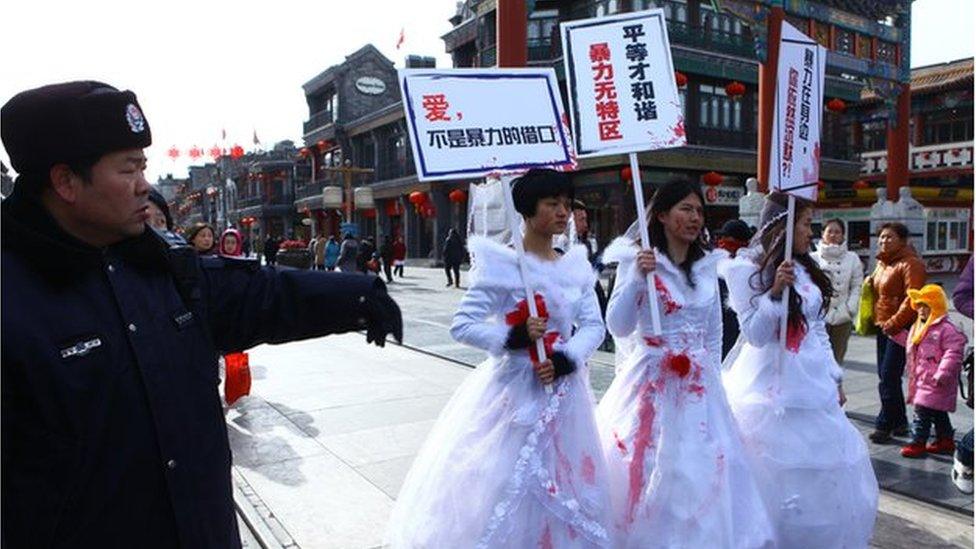
Activists including Li Tingting (pictured in the middle) have previously protested against domestic violence
Chinese women are increasingly taking to social media to speak out against sexual harassment.
In recent weeks, there has been an upsurge in campaigning comments on popular microblog Sina Weibo, where users are encouraging victims of sexual assault, domestic violence and rape to make their voices heard.
Rape can be taboo in China and victims are often afraid to come forward. Domestic violence can also be stigmatised, and China only passed its first domestic violence law in December 2015.
Moreover, women's rights activists in China have sometimes struggled to speak out. In 2015, five prominent activists were arrested, prompting international online campaigns using the #FreeTheFive hashtag.
'Didn't realise it was rape'
One of the biggest stories dominating social media in recent days has been the alleged rape of a female intern at a Chinese media company.
Police in southern Guangzhou say they have arrested a reporter working for the Southern Daily newspaper. Two other interns have said they were sexually harassed by the individual.
The #OnlineFeverThatJournalistRapedFemaleIntern, external hashtag has been trending for the past two days and social media users have been particularly interested in an exclusive interview conducted with the alleged victim by the Women Awakening rights group.
Using the pseudonym Little Flower, she said she initially "didn't realise it was rape" and had thought of rape as "a stranger in the street... using violence, a knife to force you". She added that she didn't think much would come of the case, as she described her alleged attacker as "well-known".
Domestic abuse
Weibo users have also been following an incident of alleged domestic violence in northern China.
The hashtag #BeatenBecauseBoyfriendSuspectedCheating, external has been trending after images circulated of Beijing-based user "YuzuSama" with black eyes and bruises.
After the images gained traction online, YuzuSama said she had been encouraged to go to hospital and to contact the police.
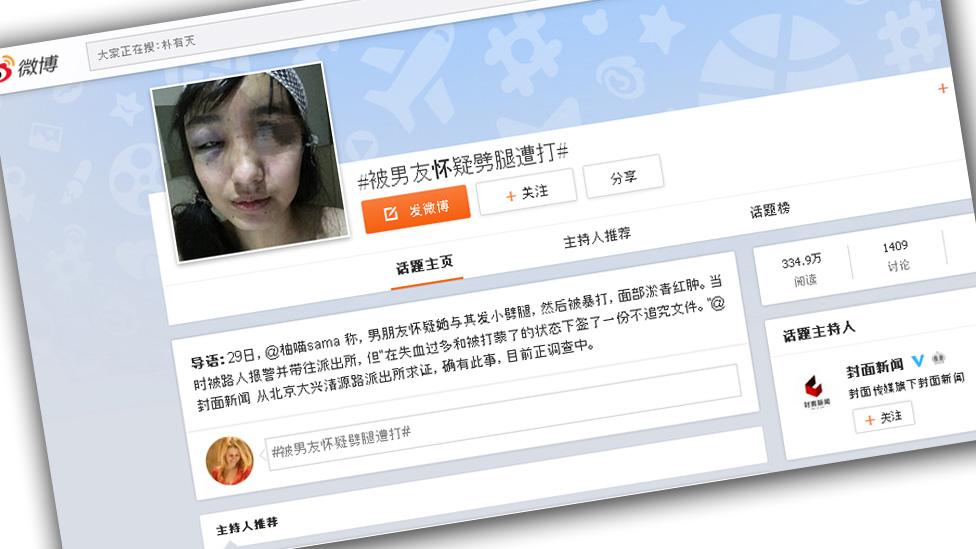
#BeatenBecauseBoyfriendSuspectedCheating is trending because of an alleged domestic violence incident
Weibo users told her "not to be afraid" after she posted from the police station that her boyfriend had been arrested.
She told users on 30 June: "When I saw him, I was still terribly scared."
'Not all men are bad'
Thousands of female users have also been making their voices heard against other, more routine, offences.
In the past month, Weibo campaigns including #ShanghaiMetroWolf, external, #NowAWretchedManOnChengduMetro, external and #TwoWomenMolestedonMetroLine13, external have been trending, after a number of women decided to "out" men who had touched them inappropriately on crowded subways.
In April, Zhengzhou in eastern China introduced its first women-only bus in an attempt to reduce the number of sexual assaults.
The concept of single-sex transport is relatively new to China and sparked debate on social media, with some welcoming the idea, and others asking whether such measures are divisive.
"Not all men are bad, but aren't all men being discriminated against here?" one asked at the time.
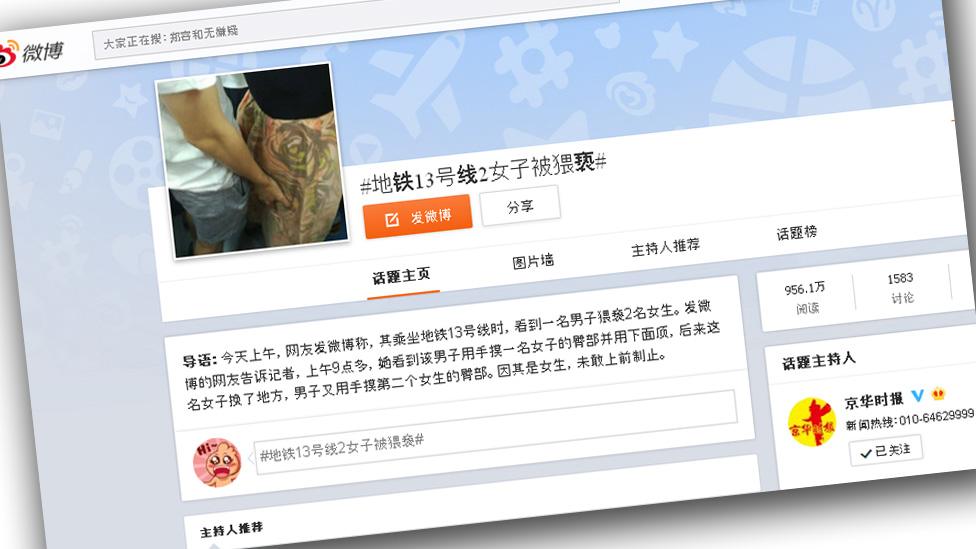
Social media users have been "outing" men who commit offences on crowded subways
Sex education
First Lady Peng Liyuan is a special envoy for the Advancement of Girls' and Women's Education at Unesco, and has spoken at the United Nations about women finding empowerment through education.
Yet there are still challenges within the education system about how sex education should be taught, with social media users saying that attitudes towards sex are outdated.
Weibo users reacted angrily in late June to a sex education textbook which described girls who have premarital sex as "cheap".
The High School Sex Education book said that premarital sex has a "tremendous negative psychological and physical impact on girls".
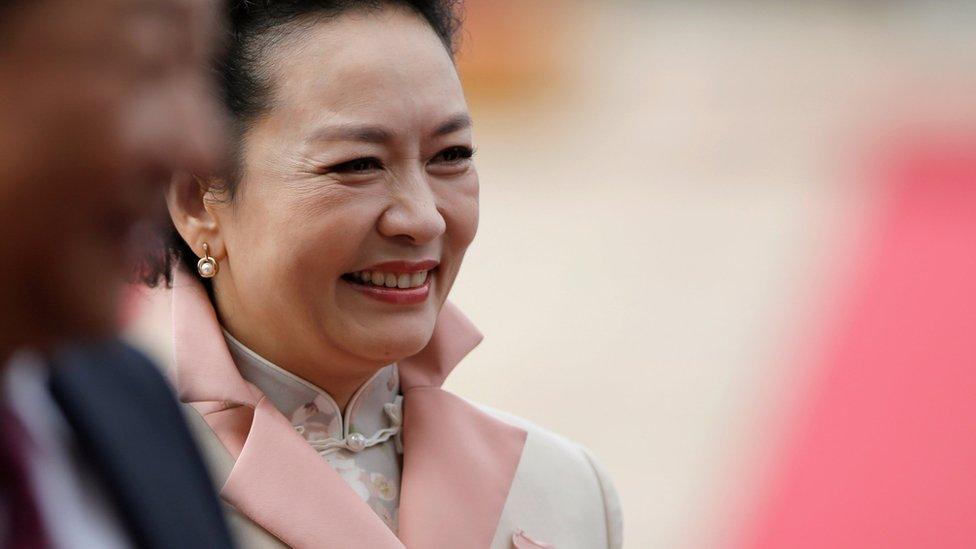
China's First Lady Peng Liyuan has been calling on women to empower themselves through education
#FreeTheFive
Women in China have not met with much success in the past on encouraging an open, collective discussion about women's rights, which is why they have been increasingly going online.
In March 2015, ahead of International Women's Day, five prominent women's rights activists were detained after planning events calling for an end to sexual harassment.
Rights groups including Amnesty International launched an international social media campaign, urging users on platforms including Twitter to use the hashtag #FreeTheFive.
The women were released a month later but protests in China in favour of women's rights are still discouraged. They are seen as acts of dissent, punishable by criminal law.
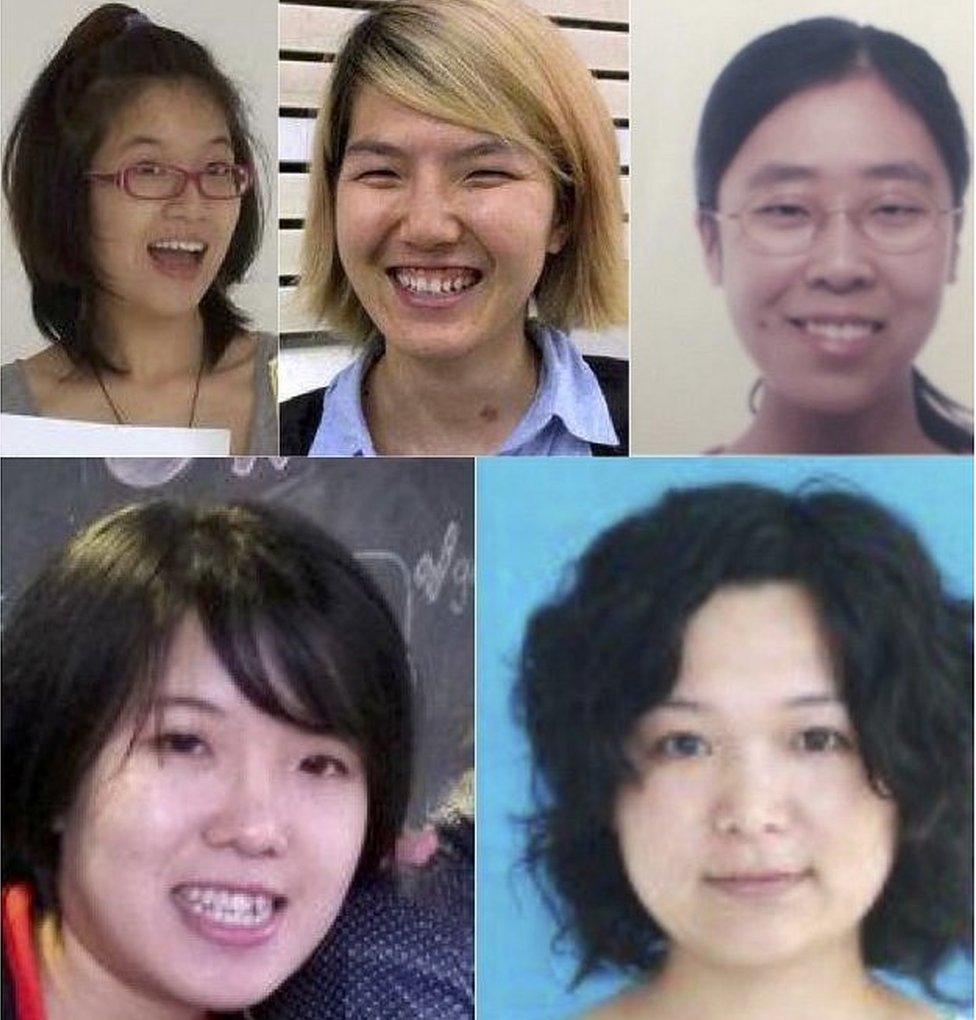
(Clockwise from top left) Zheng Churan, Li Tingting, Wang Man, Wu Rongrong, and Wei Tingting are five women's rights activists detained in 2015
BBC Monitoring, external reports and analyses news from TV, radio, web and print media around the world. You can follow BBC Monitoring on Twitter , externaland Facebook, external.
- Published4 May 2016

- Published27 April 2016
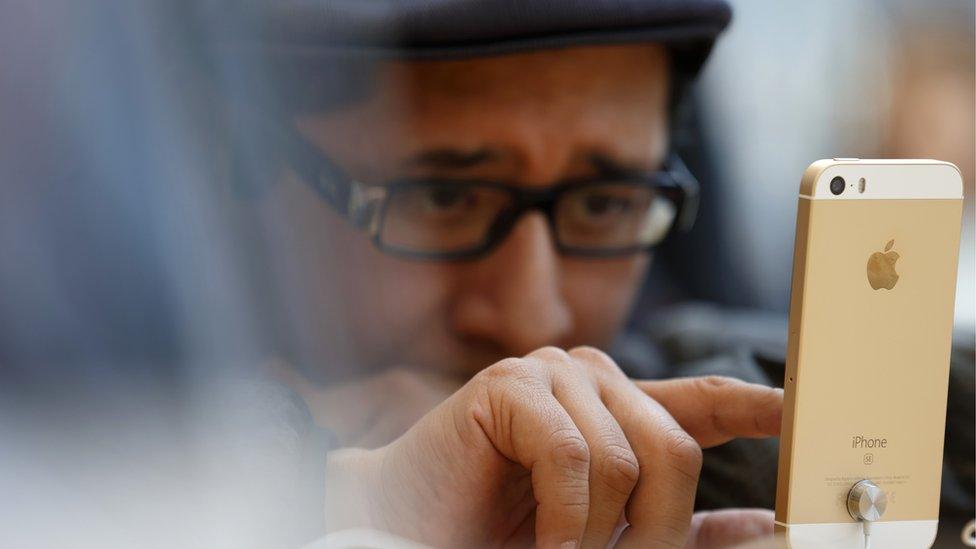
- Published22 April 2016
